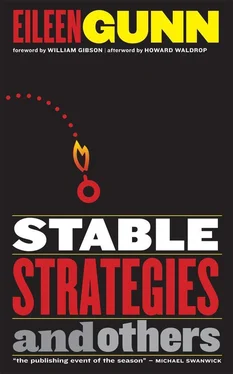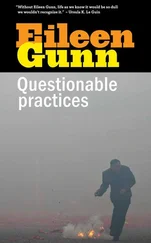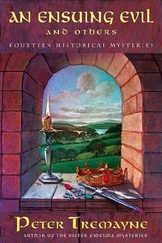She didn’t want to think about it. Box it up, she thought, in one of those cement vaults. Put your feelings aside, keep them in a box where no one can get to them. Even you. Even you can’t get to them — that’s how it works. That’s what Minerva does, and Carl. That’s the secret of high school. Box yourself in, bottle yourself up. Explode at leisure.
She heard shouts from her classmates. Each student had been given a 1.5-liter bottle of Coke. They shook the bottles, and now they were uncapping them in unison. She was missing her chance to show respect. Shaking her bottle of Coke, she ran to join the others.
Brown foam surged from the crowd of students into the open grave. Kids cheered. A few cried. Barbara was one of them.
She tossed a handful of dirt in after the Coke. “Goodbye,” she whispered.
Then it was over.
“Okay, kids, back to the bus,” said Mr. Simmons. “Pick up those bottles before you go.”
Carl shook his head and dropped crosslegged on the grass. He gestured toward row upon row of graves. “Forget it. What’s the point of going to school if you’re gonna die?”
“Hey, Carl’s flipping!” said Minerva, delighted. “Entertain us!”
“Just tell me why I should bother,” said Carl.
“Get a grip or be a slave,” said Minerva.
“Please,” said Carl. “Shove the motivational crap. Entertain us.”
“Okay,” said T’Shawn. He waved his Coke bottle and leaped up a good five feet in the air, scissor-kicking his legs at the same time. When he landed, everyone was staring at him. He started screaming, “Here we are now, entertain us, here we are now, entertain us….”
Carl started leaping too, though Barbara could tell that at first he was astonished to find himself in the air. “Here we are now, entertain us, here we are now, entertain us….”
The whole class found themselves bouncing all over the Lakeview Cemetery, most of them singing, some of them simply yelping in surprise. The other classes, teachers, and funeral attendees stared at first, then began to twitch and bounce a little bit as T’Shawn found the limit of his strength. Slowly he lowered his classmates to earth. He and Carl came down last.
T’Shawn looked at Carl and shrugged. “I don’t know what gets into me, but sometimes I feel like I want to teach the world to sing.”
“Then it’s a good thing this gig wasn’t sponsored by Microsoft — Ex-Lax,” said Minerva.
“Entertain us,” said T’Shawn.
“Nevermind,” said Barbara.
The group headed back to the bus.
AUTHOR’S NOTE:
Leslie What and I wrote this story about 1997, and tabled it after the Columbine High School murders. It seemed like over-the-top satire when we were writing it, but only a few years later, high-schools had metal-detectors, suicide counselors, and corporate sponsors, and you could actually see Microsoft from Bruce Lee’s grave. Reality has put its grimy pawprints all over our Attitude. This is what happens to science fiction writers.
Eileen Gunn, Andy Duncan, Pat Murphy, & Michael Swanwick
September, 1943. Nikola Tesla had been dead since January. George Patton had chased the Nazis out of Sicily and was pursuing them up the spine of Italy. Isaac Asimov, age 23, was learning that he was not a particularly good chemist, and probably never would be.
His superiors at the Naval Air Experimental Station hadn’t noticed yet, but Isaac knew that when they did, the raises would stop, and his smart mouth would lead him into trouble. Given a choice between saving his career and mouthing off, he’d mouth off every time.
On that day, September 16, Isaac waited almost patiently at the Navy Yard gate, whistling the Major General’s Song and counting the rivets on the guard box. Beads of sweat stood on his forehead. His shirt stuck to his back. Philadelphia in the summer was like Brooklyn under water.
I’m very well acquainted, too, with matters mathematical, I understand equations, both the simple and quadratical. 377 rivets. Not an uninteresting number. A Fibonacci number, in fact, and the product of two primes: 13 and 29. About binomial theorem I’m teeming with a lot o’ news, With many cheerful facts about the square of the hypotenuse….
Heinlein had told him to wait here by the guardhouse, and Isaac was convinced he had something up his sleeve. Bob had a hair up his ass, anyway, since Isaac had signed that petition about not working on Yom Kippur.
“You don’t believe in that stuff,” Heinlein had complained, trying to bully Isaac into taking his name off the petition. “ You’re not going to temple! If Bernie hadn’t come to you with that petition, you wouldn’t even have known when Yom Kippur was. Why not take off Christmas with everyone else?”
“So, Bob, you’re telling me Christmas is the official holiday for hypocrites like us?”
Heinlein had a hide like an ox. And he was doing everything in his power to get Isaac to work next Monday on Yom Kippur. He’d recruited Isaac for the job at the Navy Yard, and he took a personal interest in turning Isaac into a gung-ho militarist like himself. It was a lost cause.
For my military knowledge, though I’m plucky and adventury, Has only been brought down to the beginning of the century…. A jeep pulled up and Heinlein waved from the passenger seat. “Climb in! You’re wasting gas!”
Isaac got in behind him, and the vehicle pulled away. “What’s this all about?”
“Don’t ask.” Heinlein nodded at the driver. “The sailor here’s not cleared for that information.” The driver didn’t blink.
They sped across the Yard to the destroyer berths at the far end. Isaac smiled as the wind evaporated his sweat. An open jeep was considerably pleasanter than walking, and it wasn’t an option usually available to shit-job civilians.
Leave it to Heinlein. He had a pencil-thin black mustache and a beautifully tailored suit. He was as suave as you could be without sliding off the face of the earth. And he could get jeeps.
The private dropped them off next to the DE 173, the USS Eldridge , a steam-electric ship so new it still had a price tag dangling from the bow. Heinlein gestured toward it and said, “They’re going to do it, Isaac. This is our ship.”
“Did I ask for a ship?”
“The Tesla-coil experiment. The Navy agreed to give it a try.” Heinlein was pumped plump with excitement.
“You’re kidding?! That’s a wild goose chase, if ever there was one.”
Not three weeks before, sitting around the mess-hall table, he and Heinlein and Sprague de Camp had tossed around a science-fictional scenario for making a ship invisible to detection by radar, which the Germans were rumored to be deploying. Isaac had jokingly suggested creating clutter echoes by running a current through Tesla coils, and got a big laugh from the others. When the hooting died down, though, Sprague looked up from his plate of miserable beef, and said thoughtfully, “You know that might almost work, except — ” Several excepts later, they had a plan, which Heinlein submitted the same day. And now the Navy thought it would work? Isaac mugged astonishment.
Heinlein shrugged. “Well, it’s not quite what we submitted, but it’s close enough that they want us to go along to observe the experiment.” They’d reached the gangplank. He motioned Asimov ahead of him. “Climb aboard, Isaac. We’re shipping out.”
“Shipping out?” Philadelphia was as far as Isaac ever intended to get from Brooklyn. Heinlein had to be joking. “Fuggeddaboudit, as we say in my country. My wife’s expecting me for dinner.”
“Not any more, she’s not. I sent her a telegram: We’re on essential war work, top secret, gone two weeks minimum. Unfortunately, you’ll be on board ship for the Jewish holidays, so you might as well work them now and get Christmas off, eh?”
Читать дальше












